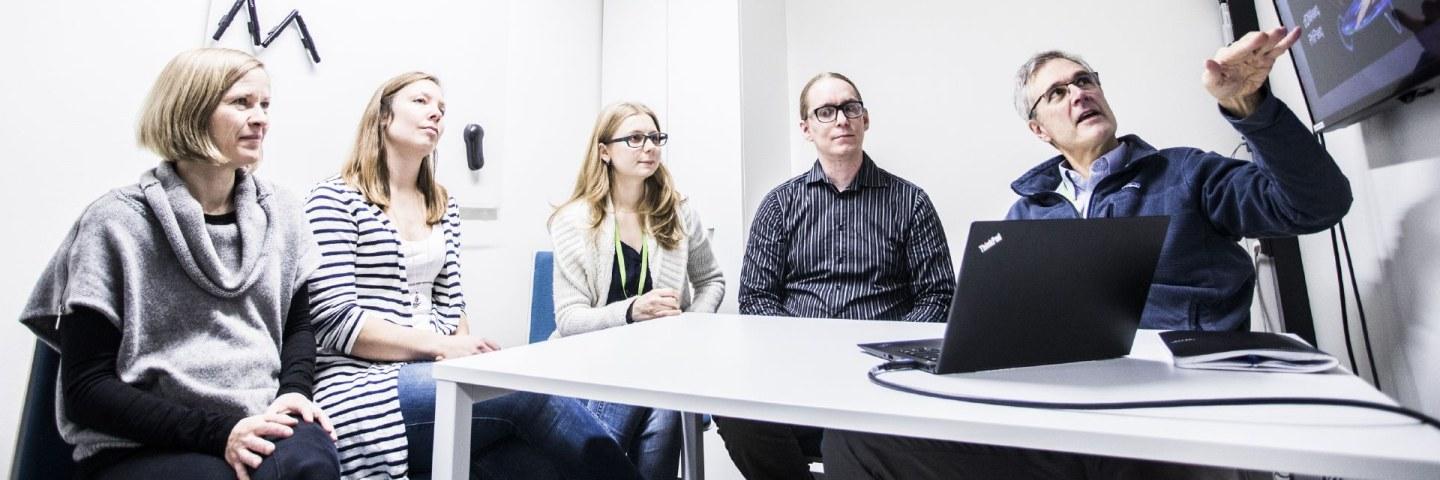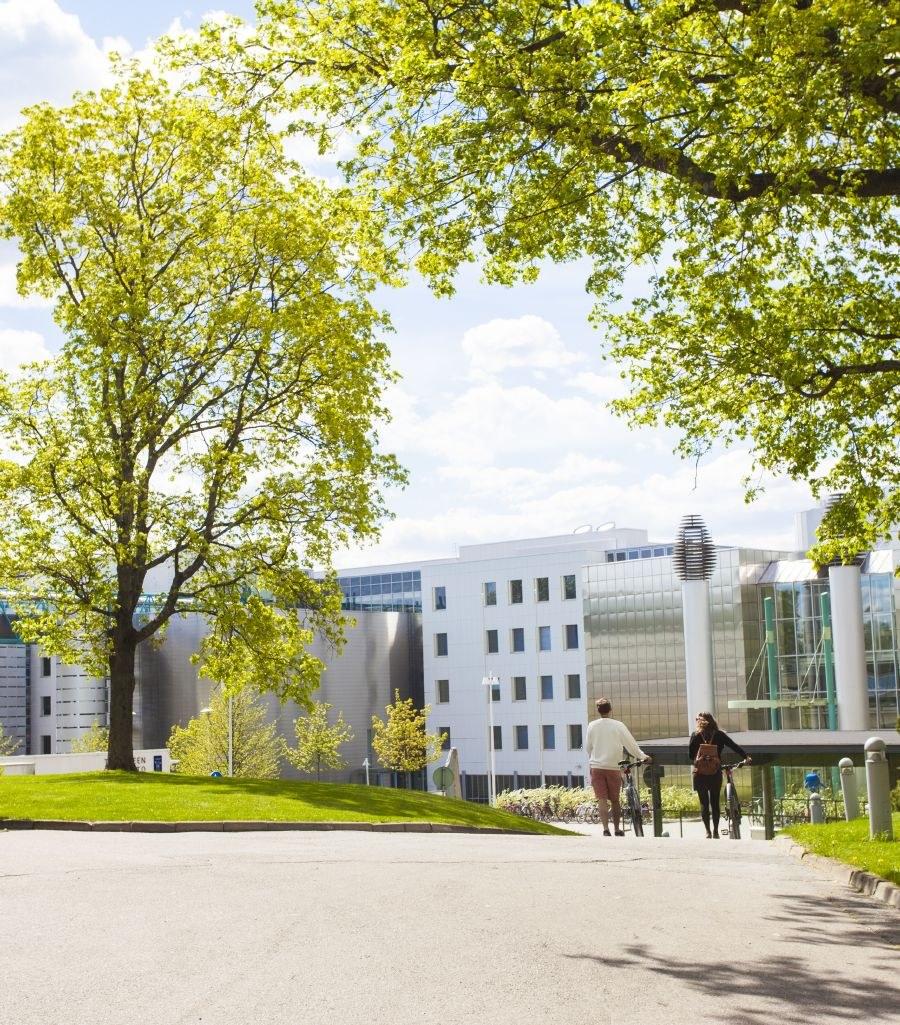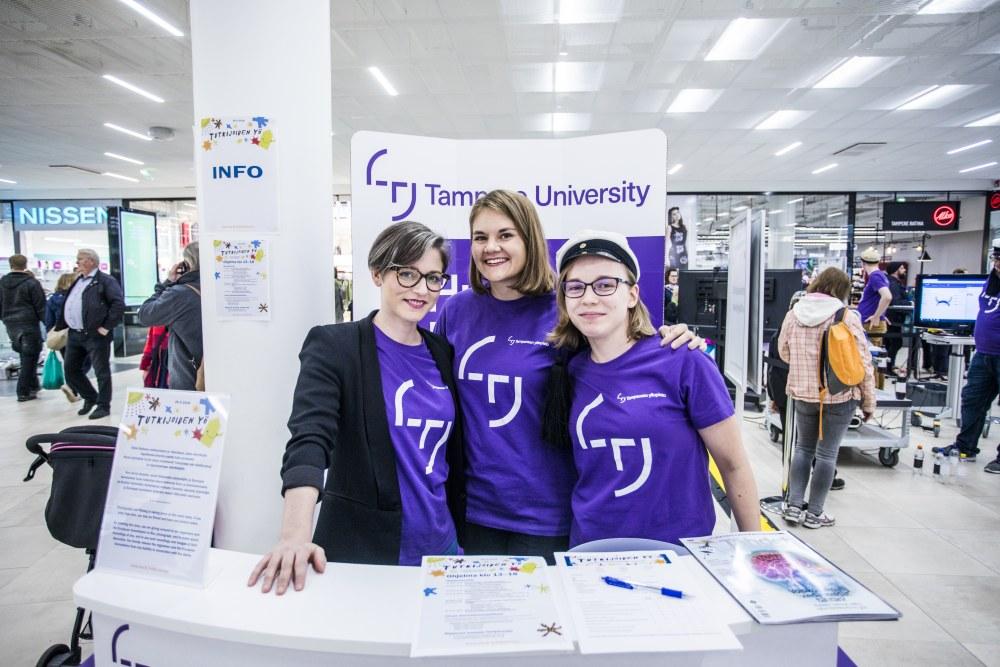
Tampere University’s Human Resource Programme
Cornerstones of our Human Resource Programme
Strategic human resource planning and recruiting
We do responsible recruiting and have a long-term approach to creating stable jobs.
Competent people
The focus of our professional development activities is on academic skills, expertise, and leadership skills.
Inspirational work community
We are building an organisational culture that reflects our core values and fosters the well-being of our work community.
Strategic human resource planning and recruiting
A long-term, anticipatory approach to HR planning is integrated into the annual planning process of operations and finances. This approach ensures that the long-term needs of teaching and research as well as the University’s strategic goals are considered in the context of human resource planning. Our recruitment activities reflect the University’s core values and internationalisation goals.
Long-term HR planning improves staff stability and allows the University to adopt a proactive approach to the planning of activities. Supporting the professional development of employees in the different career stages of both faculty members and support staff further contributes to this long-term approach.
Our recruitment practices foster a positive employer image, and we are committed to creating a positive candidate experience. We comply with the European Charter for Researchers and Code of Conduct for the Recruitment of Researchers as demonstrated by the HR Excellence in Research award. Our research assessment procedures are aligned with the San Francisco Declaration on Research Assessment (DORA).


Competent people
At Tampere University, professional development is a long-term, goal-oriented activity that supports not only the achievement of the University’s strategic goals but also career advancement among our staff. The focus of professional development activities is on the development of academic skills – such as research skills and pedagogical competence – and on the development of expertise.
Regularly conducted professional development reviews support employees’ career advancement and professional growth. Professional development is emphasised when employees reach a turning point in their career. Professional development activities support good and responsible management and leadership, the development of team working and collaboration skills, and the building of an international organisational culture.
We foster a culture of continuous learning and offer employees a variety of professional development opportunities from coaching to on-the-job learning. In the national continuous learning project, we reshape and renew professional development activities.
Inspirational work community
We are building an organisational culture that reflects our core values, fostering a sense of community and supporting smooth collaboration on the faculty and unit levels and teams and cultivating a sense of belonging amongst the members of our community. We make sure the international members of our community feel at home at the University. We help individuals who occupy supervisory positions to develop effective leadership and teamwork practices and cultivate the community spirit.
Our work communities promote a culture of continuous learning and co-creation and offer everyone the opportunity to take part in the development of our university community. Our units and teams are holistically supported while taking the promotion of internationalisation and the diversity of our community into consideration.
In all endeavours, we are committed to fair leadership and the equal treatment of all staff. We are working to enhance the position of grant holders and help them integrate into our university community.

Priority areas in the Human Resource Programme in 2020–2021
Developing occupational well-being
- Building a strong organisational culture
- Developing leadership and supervisory skills
- Facilitating efficient daily workflows
Supporting career advancement among employees
- Developing teacher identity and pedagogical expertise
- Developing research skills, leadership skills and leadership
- Developing the competencies of support staff
Developing the work community
- Promoting internationalisation
- Promoting continuous learning
- Integrating grant holders more closely into our community